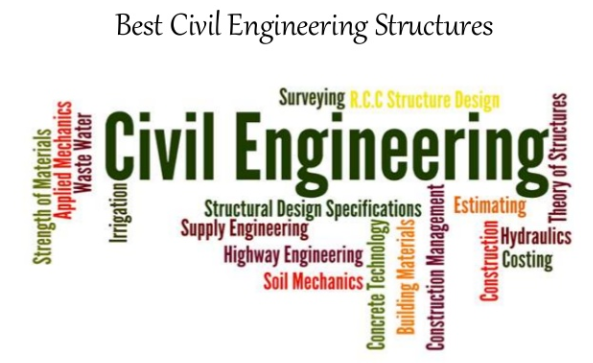Civil Engineering

Course Details
Diploma in Civil Engineering is a 3-year long course in engineering, specializing in the design, construction, and maintenance of physical and naturally-built environment, such as roads, bridges, canals, dams and buildings. Major sub-disciplines of the course include drafting (both manual and computer-aided), planning, surveying, construction technology, estimation & costing, basics of highway, bridge, railway, airport, tunnel and harbor engineering.
Students enrolled to the course are offered adequate exposure to reinforced concrete structures, quality control, material testing, construction management & entrepreneurship, professional practice and office procedures, extensive survey, building drawing, irrigation & bridge drawing, structural engineering drawing. Candidates also get exposure to software applications like AUTOCAD & STAAD. Civil Engineers are professionally responsible for overseeing design and construction of industrial plant buildings, transmission towers/lines, waterworks, river navigation, airport runways, skyscrapers, power plants, irrigation canals, traffic control infrastructure, dams, shipping canals, bridges, rail-roads, sewers and highways.
“Civil Engineering is the art and mechanism of directing the power in nature for use and convenience of man. It is an art to create the developed world around us.”
Eligibility:
10th with PCM
Duration:
3 Years
Admission Enquiry
Admission Process
Career Prospects
Civil Engineers are constantly in great demand for construction, maintenance and repair of communal and other infrastructure. Such professionals are gainfully employed across consultancy firms, quality testing labs, street-based activities and building work. By the modern civilization and facilitation of current period, there are rich opportunities for civil engineers in entire world. Every country is in the race of development. A civil engineer can play a vital role for doing so.
A growing population likely means that new water systems will be required while, at the same time, aging, existing water systems must be maintained to reduce or eliminate leaks. In addition, more waste treatment plants will be needed to help clean the nation's waterways. Civil engineers will continue to play a key part in all of this work. The work of civil engineers will be needed for renewable-energy projects. Thus, as these new projects gain approval, civil engineers will be further involved in overseeing the construction of structures such as wind farms and solar arrays
Employment Areas
Diploma holders in Civil Engineering have good career opportunities in Government sector and also in Private sector enterprises.
- Rain water harvesting system
- Estimation
- Gas and Oil plants
- Construction of pipelines
- Construction of tunnels
- Surveying
- Water mains
- Preparation of civil drawings
- Power generation firms
- Construction of buildings
- Construction of dams
- Construction of sewage systems
- Construction of bridges
Higher Education After Civil Engineering
They can get into the following B.Tech and B.E courses via lateral entry.
- Bachelor of Engineering in Agricultural and Irrigation Engineering
- Bachelor of Engineering in Civil Engineering
- Bachelor of Engineering in Ceramics and Cement Technology
- Bachelor of Engineering in Geo Informatics
- Bachelor of Engineering in Transportation Engineering
- Bachelor of Technology in Ceramics and Cement Technology
- Bachelor of Technology in Civil Engineering
- Bachelor of Technology in Civil Engineering + Master of Technology in Structural Engineering
- Bachelor of Technology in Civil and Transportation Engineering
- Bachelor of Technology in Civil Infrastructural Engineering
- Bachelor of Technology + Master of Technology in Civil Engineering
Civil Engineering Diploma one can directly pursue the following Advanced Diploma courses.
- Advance Diploma in Drafting and Design
- Advance Diploma in Structural Design
- Advance Diploma in Construction Management
- Advance Diploma in Civil Engineering
- Advance Diploma in Surveying
Job Opportunities
Top Government undertakings that recruit Civil Engineering diploma holders include:
- National Fertilizers Limited
- Bharat Sanchar Nigam Limited
- MMTC Limited
- Hindustan Paper Corporation Limited
- Bharat Earth Movers Limited
- Power Grid Corporation of India Limited
- Bharath Electronics Limited
- Cement Corporation of India
- Hindustan Zinc Limited
- National Small Industries Corporation Limited
- National Thermal Power Corporation
- Bharat Heavy Electricals Limited

